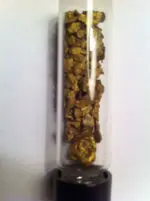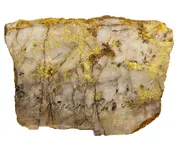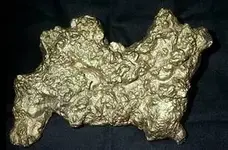Another long-winded post amigos, extra coffee alert and I must ask your indulgence again; thank you in advance.
Springfield wrote
If he didn't file on the mine, especially after having allegedly worked it secretly and caching a large amount of gold in the hills and under his bed, it's most likely for one reason - he didn't have a mine. Why? Because the gold - if indeed it existed - came from another source. <snip>
I have seen this argument before, along with several others.
Waltz never had a mine (in the Superstitions)
Waltz only had a cache
Waltz would have filed a claim if he really had a mine
and of course
The mine was found already and worked out
etc etc
Everyone has their own conclusions and opinions on this topic. You can reason how Waltz should have filed a claim if he had a mine, how he would have mined out as much gold as possible, etc.
It is reasoning on your own logic, not his.
Why would Waltz have failed to take his friends to his mine? How about that he was sick, in fact he was sickly from the date of the great flood of Phoenix the previous spring, until the day he died. The account of this single attempt to take Julia and Reiney to the mine, includes that they took a wagon as far as the Verde river, camped, he told them they would be at the mine the next day, but he sickened during the night and had to be taken back. Otherwise it is possible that the mine would never have been "lost".
One man claimed to have seen Waltz working at the mine - so it is NOT a case that "no one ever saw him working the mine" - Phipps. Of course the skeptics can simply claim there never was a Phipps.
As to the cache theory and NO MINE, this is patently flawed at the core, for a cache of gold ORE had to come FROM A MINE. What mine? The Vulture, the Bulldog, the Black Queen, the Big Rebel, perhaps? None will fit. We know that Waltz was an experienced prospector, had found or helped find several good gold mines in the Bradshaws, for he did file on them. Which brings us to the next issue, why then did Waltz NOT file on his mine in the Superstitions?
First of all the situation in the Bradshaws, was
very different from the Superstitions. Yes there were hostile Indians in the Bradshaws, hence the petitions for protection by the miners. There is the key word - miners, plural. There were many miners operating in the Bradshaws, and contrary to popular misconception, miners in the 'good old days' were sort of like a brotherhood, they banded together for mutual protection, formed mining districts for establishing legal claims to their discoveries, and generally were fairly honest amongst themselves. This was rather true in the Bradshaws in the 60s, but hardly the case in the Superstitions of the 70s/80s. There were VERY few prospectors operating in the Superstitions, and for obvious good reasons (the area is rather un-promising, geologically speaking) and in fact any prospector operating there was viewed as silly, foolhardy (for the risks from hostile Indians known to haunt the region) or crazy. Waltz was seen selling small amounts of gold in various places, and followed when he tried to return to the mine, repeatedly. A very different class of men was the case.
Instead of having a band of 'brothers', fellow miners willing to stand up for each other to protect their rights, Waltz had claim jumpers ready and willing to trail him to the mine, even to murder him in order to steal it. Thieves were also quite active. Look at how the story of Waltz changes, from his early days of visiting Florence and Adams Mill for supplies, where the old timers later stated that "it was no big secret" that Waltz had a rich mine, and no surprise here for other prospectors were also frequenting Florence, to later in Phoenix, it WAS a big secret, and not really widely known until after Waltz was dead and buried. Different people and different circumstances. Not to trash the people of Phoenix, but there were clearly some men operating in the area whom were much
less than honorable.
Waltz never filed a claim on the mine.
We can only speculate his reason(s), but there ARE reasons that can explain it. Waltz was seen selling gold ORE, not bars or coins, and this is what Holmes stated he found in the candle box. Gold ore has to come originally from a gold mine, period. Waltz's friends who knew him in his last days, all went hunting for the mine. Julia went by almost the same route of the single attempt by Waltz to take them to the mine on her first attempt, passing Goldfield where shortly, several good gold mines were discovered. Considering that there really are good gold mines in the area, along with the silver mines of the E and NE areas, I see no reason to dismiss Waltz's story of having a rich gold mine or to try to explain it away by speculation. <The Goldfield hills were considered part of the Superstitions in Waltz's day BTW>
Of course nothing can be said in a forum that is going to change any minds, we all have our conclusions, just thought I would point out that there is no basis
( or source) for the idea of Waltz only have a cache of gold he was making "withdrawals" from.
Even if this were the case, the ore had to come from a mine, and it is hardly logical that mine would be located in the Bradshaws or California or Georgia, if you think about it, for the ore would have had to be hauled from the distant location to end up hidden in the Superstitions, which is not sensible.
So by all means,
believe what you will, the mine never existed, it was only a cache of stolen gold, it was not even in Arizona, it was the Pit mine, it was found and all mined out, it was all a story made up by treasure writers to attract tourists to Apache Jct and make millions on the treasure story sales***, it was the secret cache of little brown men with poisoned arrows, etc. I hold that the simplest explanation is that Waltz did have a mine,
had his own reasons for not filing a claim, only mined what gold he wanted, keeping the mine location a secret for his own reasons, and the mine remains undiscovered to this day.
I had a hunch that if I posted something it would lead to the argument it did.

Trying to trace the sources of the many (over 100) clues to the LDM is a tough one - I am pretty sure (don't have the books at elbow) that one or both statements about the military trail, can be found in the Holmes account AND in the Mitchell account. The statement about being able to see the military trail was also (allegedly) among the clues Waltz stated while having drunken revels in his earlier days.
Advocat wrote
About the ore -- when assayed, doesn't ore more or less have its own signature? I thought I had read that the matchbox gold is distinct from any known mines. Could be wrong....
We do not have the actual assay report, however from Helen Corbin we have that it was very high in gold, and rather low in silver, <as a ratio to the gold content> which is the usual for hypothermal gold deposits. This is different from most of the candidates usually proposed as the "true" source of Waltz's gold. You are correct that all gold veins (deposits, not all are veins so to speak) are distinctive, no two are exactly alike. Some will argue that gold ore varies considerably within the same vein, which is true, but the basic differences remain and I will stick by the statement.
At least until someone can demonstrate that ore from one gold mine, will match exactly the ore from another gold mine located miles away. So far no one has shown this.
***I have been accused of wishing to "keep the LDM lost" for ___
(fill in the blank here, getting rich on the LDM books I wrote, which to this point is zero, for the millions it generates in tourist dollars for Apache Jct businesses, which by extension must be paying me some kind of kickback, which I have never been able to cash in on, for the Dons club benefit, which likewise I have NO connection with, etc) so feel free to dismiss or ignore everything I said. I won't argue this forever.

Good luck and good hunting amigos, I hope you find the treasures that you seek, even if you don't believe they exist.
Oroblanco



















